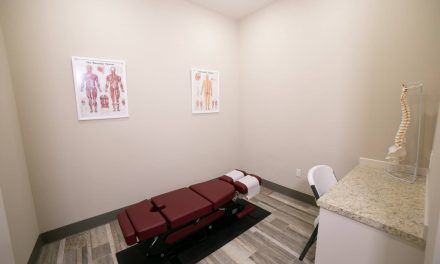In this article, highly sensitive person Kelly Tettero shares her experiences and tips around PTSD and being an extroverted highly sensitive person.
Estimated reading time: 6 minutes
As a 28 year-old, highly sensitive and extroverted person, I have had to deal with many ordeals in my life, which ultimately resulted in me developing PTSD.
As a result of my traumatic life experiences, certain beliefs and assumptions slowly accumulated within me that caused me to become more hesitant as a person. In addition, these experiences caused me to form a strong opinion and limiting beliefs about specific aspects of myself.
PTSD is not something minor and it is extremely important to respond to the emotions and the attention it demands. Especially as a highly sensitive person, you should not underestimate the effects of PTSD on your overall wellbeing and health.
My PTSD is an accumulation of multiple events such as physical abuse, sexual harassment, sexual abuse, threats, being followed etc.
The straw that broke the camel’s back and gave a completely different spin to my life was the physical abuse that took place in November 2018. It arose after a traumatic episode where I was verbally abused and strangled.
In this article, you will discover how to cope with PTSS in daily life. Also, I will share valuable insights upon coping with PTSD as a highly sensitive person and extrovert.
Here’s What You Will Learn:
How I Discovered That I Have PTSD
You may think, that I as a highly sensitive person immediately felt that I had PTSD after being strangled. However, PTSD usually sneaks up on you in the most unexpected moments.
As an extroverted highly sensitive person I really enjoy going out. I thrive around the energies of other people. Therefore, I like to be in places where there are many people (only during daytime, by the way). Preferably a city or a park where there is a lot of authenticity.
However, after the abuse I suddenly found myself panicking in front of men due to my PTSD. Also, I felt as if my energy had no off switch, which was incredibly tough due to my HSP trait.
I gasped when men came close to me. Additionally, I sometimes hyperventilated. Also, I experienced restless nights because I was so alerted and wanted to hear everything going on around me. I felt very restless and nervous when I was standing in line somewhere or there were men around me.
In fact, I couldn’t even be alone with my own dear brother (who means everything to me) anymore. I had to have an overview of everything everywhere. In the park, in a restaurant, in a shop… anywhere you could think of.
I had to be able to foresee every possible danger. It was more than just being overwhelmed as a highly sensitive person. I knew that. Not much later I went to see several doctors and was diagnosed with PTSD.
If you’d like to discover whether you have PTSD, here is an interesting video:
How Am I As An Extroverted Highly Sensitive Person Coping With My PTSD Diagnosis?
I received EMDR therapy for a short while. However, it did not work on me and backfired. Therefore, I started to tackle my PTSD my own way. Here are some of the strategies I used in my recovery.
Feeling Safe Again
Safety is a feeling that we initially are born with and it is important to feel safe in our own bodies. We enter this world feeling safe and it are our surroundings that either confirm that feeling of safety or take it away from us. I started working with that awareness and began looking for small challenges.
Therefore, I took babysteps towards stretching my comfort zone to feel safe again. First, I built my trust towards men slowly by visiting and being around my brother. Once that felt safe and good, I stretched my comfort zone further.
Evaluating Situations
I started to evaluate any situation in which I felt anxious. For instance, I practiced while waiting in line at the supermarket. When a man waited in the same line behind me and every fiber in my body was saying that that man was not safe to be around, I asked myself: What’s the worst that could happen?
Then, I started to focus on my breathing and I waited and succeeded to calm down and overcome this challenge. After some time I stretched my zone further by hugging men again (still while holding my breath though). From there, I slowly started to consciously focus on my breathing when hugging a man.
This technique helped me as a highly sensitive person to cope with PTSD. It is good to evaluate the situations you find yourself in whenever you feel anxious. Oftentimes, it is your body tricking you to feel danger, although there is none.

Where Am I Now In My Healing Journey?
Now I am able to meet men on my own again. Also, I love to be able to cuddle my brother without fear. I love going to the city again and am able to enjoy all the authentic vibrant energies around me.
I even consciously make an appointment with a man when I have the choice. This way, I ‘show’ my PTSD that it is okay to be around men and that I am safe and ‘it’ does not have to stay alert to protect me.
However, I am aware that there certainly still are layers within me to heal. Nevertheless, I have already overcome all these challenges by not running away from them, but accepting them when they arose.
Also, the realization that PTSD is not me, but that it is a behavior within me, helped me tremendously in my healing journey until now.
My Tips If You Are A Highly Sensitive Person Struggling With PTSD
Now that you have read my story, I am happy to share some tips with you. If you are a highly sensitive person experiencing PTSD, you may want to try the following:
- Try to oversee the situations in which you are anxious and ask yourself what is the worst that could happen at that moment.
- Be aware that safety is within you and something you were born with.
- Accept and overcome the different challenges that are a result from PTSD and do not push them away.
- Be vulnerable and share your story.
- Feel your emotions lovingly and give yourself plenty of time to heal.
- Find a good coach/expert who can help you to tackle these challenges.
And last but not least, I would also like to say that I hope you will find the strength to take the pen of your book/life story back into your own hands. Live your best life. You are worthy to be here and to show the world your beautiful, unique and authentic self. You deserve your place in this world and don’t let anything or anyone steal your enjoyment of life and happiness.
I hear you, I see you, I emphasize with you.. and you are a beautiful human being! If you feel the urge to send me a message, please know that you are welcome to reach out to connect!
If you’d like to read more about PTSD, you may want to discover the ‘Complex PTSD Workbook: A Mind-Body Approach To Regaining Emotional Control And Becoming Whole’.






